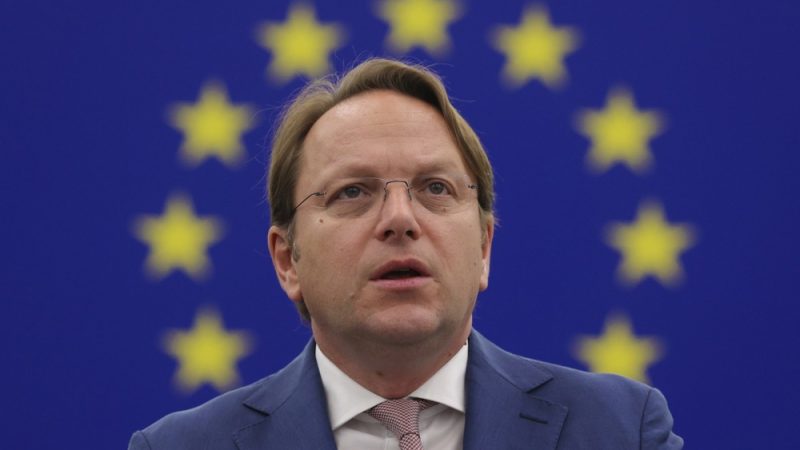The nomination of Olivér Várhelyi, an ally of Hungary’s nationalist ruling party, to the health portfolio in the bloc’s new executive commission last week cast a harsh spotlight on the country’s own much-criticised public health system.
“If the goal is to help the member states of the European Union with ideas to destroy the health sector, to ransack it… then it was a great idea” to nominate Várhelyi, Zoltan Tarr, an EU lawmaker from Hungary’s opposition, told local media.
Hungary’s public health system has been under scrutiny since opposition leader Péter Magyar — a former ally turned critic of Prime Minister Viktor Orbán — started touring hospitals this summer to denounce their “deplorable” conditions.
Magyar accuses Orbán of “systematically underfunding and dismantling public healthcare” by getting rid of the health ministry to save money shortly after he returned to power in 2010.
Hungary spent only 4.4% of its GDP on health in 2022, a smaller share than any other EU country, Eurostat figures show.
“Unfortunately… successive governments have not treated health as a priority,” the head of the country’s Hospital Association, Gyorgy Velkey, told AFP.
No water, no air con
Surveys show the quality of healthcare is one of the Hungarian public’s biggest concerns. Complaints from patients proliferate on social media.
From the lack of basic sanitary items to crumbling facilities, the list of complaints is almost as long as the notorious waiting lists for specialist care.
In one Facebook post from last month, a father deplored the state of the hospital in which his son, in his 30s, died of thrombosis.
“There was no air conditioning in the ICU. We had no light in the bathroom outside the ICU, and we were using our phone to get some light. There was no toilet seat and no water,” Laszlo, who asked not to be identified by his full name, told AFP.
Many patients say they turn to private providers to get better and faster medical care.
Szilvia, 32, who did not want to be identified by her full name, paid the equivalent of 3,000 euros ($3,350) to give birth to her second child in a private hospital after a “traumatic birth experience” with her first-born.
[…]



deleted by creator
wait wait wait… Hungary is not the best place for homosexuals, (and mostly for anyone else as well), but that’s simply not true. I know I live here.
Facts
So I mean there are an awful amount of hypocrisy they speak about “traditional family values” and things you based your comment on, but in real life it’s not as terrible as it sounds from your comment.